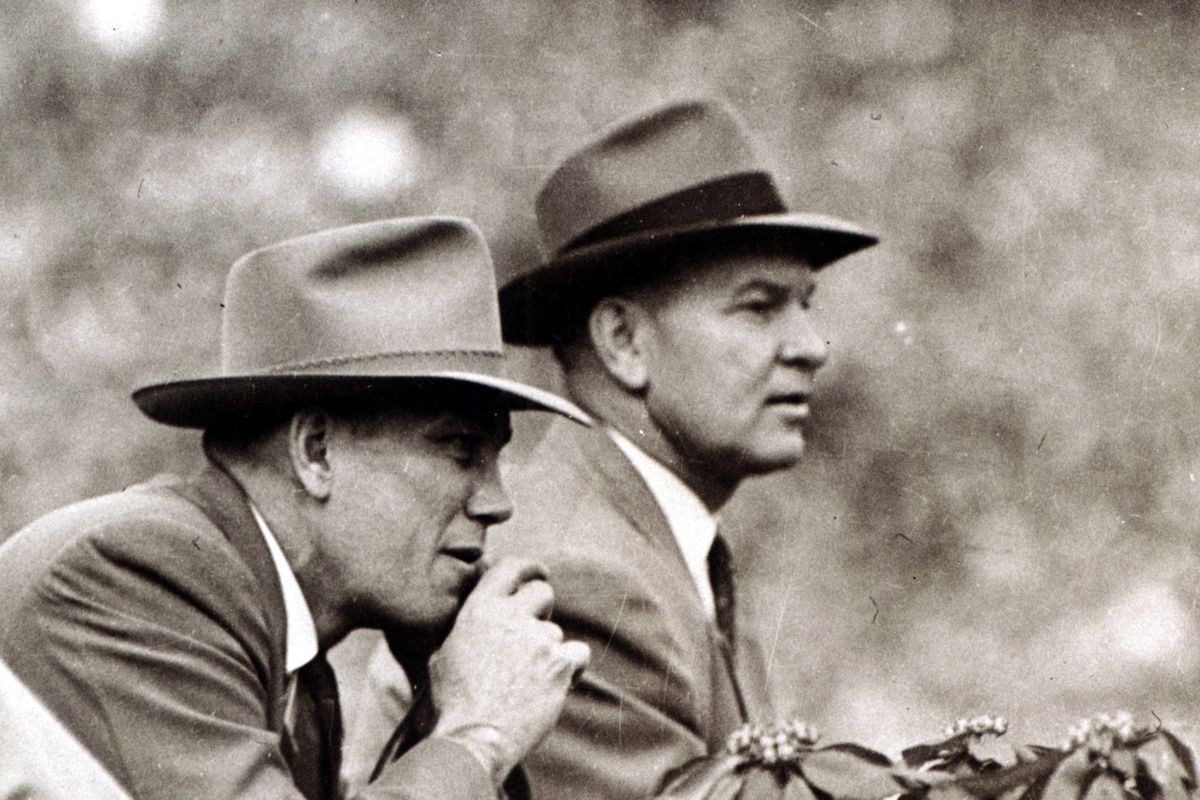The date: November 14, 2025
The matchup: No. 5 Ole Miss (8-1) vs. No. 9 Tennessee (5-1-1) in Memphis
The stakes: Winner remains in the hunt for both the SEC title and a Sugar Bowl bid after a wacky few weeks.
The back story: On October 31, Ole Miss had been Billy Cannon’d by LSU. The Rebels had mostly outplayed the Tigers but failed on a number of scoring chances and gave up Cannon’s amazing punt return in a 7-3 loss.
On November 7, top-ranked LSU then fell victim to a 14-13 hangover upset to Tennessee in Knoxville. It was the Tigers’ turn to do the “outplayed ‘em but lost” thing.
Now came the third game in the round robin. Ole Miss was a touchdown favorite but had been favored the year before, too, when Tennessee pulled an 18-16 upset. The Rebels might have been the best team in the country — and one of the best all-time thanks to that defense — but needed quite a few breaks to get back into the national title hunt.
To this point, Ole Miss had outscored opponents 250-14. Tennessee didn’t have a chance, but the Vols didn’t know it yet.
The game: From the Anniston Star:
MEMPHIS, Tenn. (UPI) — Mississippi humbled giant-killer Tennessee 37-7 Saturday to become a leading contender for a major bowl bid.
Quarterback Jake Gibbs scored one touchdown and passed for two more and fullback Charlie Flowers, Mississippi's All-America candidate, ripped Tennessee's line to shreds to power the seventh-ranked Rebels over Tennessee.
The capacity crowd of 34,512 frozen fans included representatives from five bowls—the Sugar, Orange, Gator, Cotton, and Bluebonnet. Mississippi, beaten only by LSU is virtually assured a New Year's date.
Tennessee, which had upset LSU and Auburn, was stopped cold by "Brewer's Bruisers," Mississippi's defensive unit. Tennessee's only score came in typical Vol fashion, tailback Glenn Glass racing seven yards into the end zone after Lebron Shields blocked an Ole Miss quick-kick and Mike LaSorsa fell on it at the seven.
Ole Miss allowed three touchdowns in 1959. One came after Tulane recovered a fumble at the Rebels’ 3, one came after Tennessee recovered a blocked kick at the 7, and one came via one of the greatest punt returns of all time. If you had to drive more than seven yards on the Rebels, you weren’t going to score.
The box score:
Plus: Tennessee completed five of five passes!
Minus: everything else. Ole Miss lost two fumbles and got flagged far more than the Vols, and Tennessee was still a bit lucky to only lose by 30. Total yards: 436-143. First downs: 22-8. The Rebels more than tripled Tennessee’s rushing yardage and completed 11 of 14 passes.
This really might have been the best Ole Miss team of all time. But because this was 1959, the Rebels would have only been allowed to prove themselves so much even if the punt to Cannon had gone out of bounds as planned. From 50 Best*:
The Sugar Bowl, meanwhile, was staring at the possibility of pitting two SEC teams against each other, just as it had done in 1952 (Georgia Tech-Ole Miss) and just as it would do again in 1963 (Alabama-Ole Miss).
Slowly but surely, segregation was getting in the way of sports ambition. [...]
The 1959 season took place well into the third stage. Almost no school south of the Mason-Dixon line had yet integrated, but a lot of them were willing to play integrated schools. In fact, Georgia, which won the SEC when both LSU and Ole Miss fell, agreed to play an integrated Missouri squad in the Orange Bowl that very year, just as Texas agreed to play Syracuse in the Cotton.
Schools in the deepest of the deep South – Louisiana, Mississippi, Alabama – were not there yet. In fact, state law still forbade them from getting there. Seating at Tulane Stadium, home of the Sugar Bowl at that time, was designated for whites only; it said so right on the ticket. Racism was in no way limited to the South, but it was certainly more ingrained in ordinances.
This made the sports teams at these schools sources of pride for those still clinging to the supposed glory of the Confederacy. They were unwitting fighters in the battle against change.
This also made finding Sugar Bowl pairings an increasingly difficult task. In some ways, in fact, the success of LSU and Ole Miss bailed the Sugar Bowl out. Without those schools to lean on, the bowl would have struggled even further. [...] State pride or no state pride, frustration was building.
Sports don’t change the world, but I guess they can make you slightly more frustrated with it. In some cases, that can be a good thing.



Loading comments...